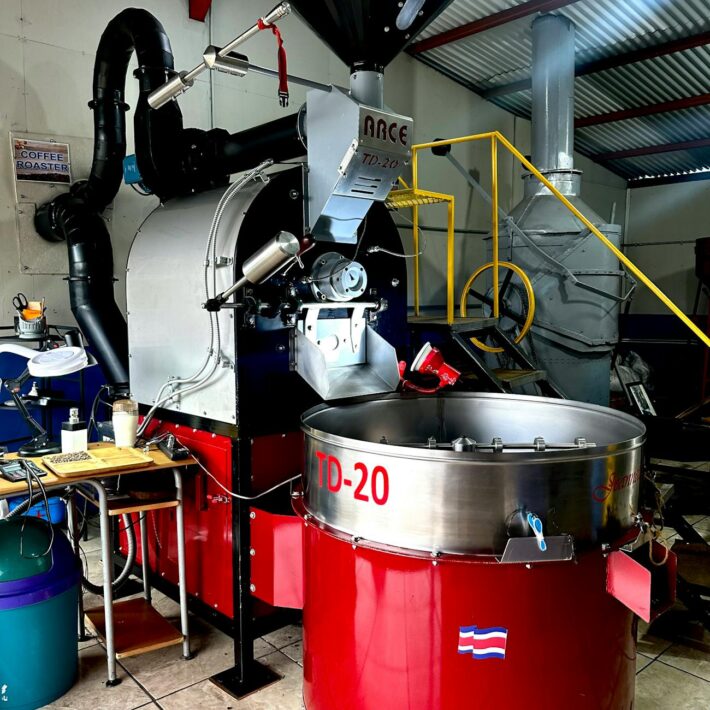Health Technology Business Ideas to Start in 2024

Contents
Health Tech Business Ideas to Launch in 2024
Today's health tech sector is booming, ripe with opportunities for innovation and entrepreneurship. This article spotlights some practical and impactful health tech business ideas for 2024, aiming to inspire budding entrepreneurs.
Health Technology Business Ideas for 2024
This area offers tons of potential, from innovative mobile health apps to cutting-edge remote patient monitoring tools. Let's break down some promising possibilities:
Mobile Health Applications (mHealth)
Mobile health apps are an incredibly powerful way to bring healthcare to people's fingertips. These are some ideas with great potential:
- Personalized Nutrition Plans: A user-friendly app could guide users toward healthier eating habits with tailored plans based on individual needs and preferences. This could potentially integrate with grocery delivery services.
- Mental Health Support: An app offering guided meditations, mood trackers, and interactive support groups could empower individuals seeking mental health support. This could also connect users with local therapists or support groups.
- Chronic Disease Management: A robust app offering personalized reminders, medication trackers, and symptom checkers can help individuals manage chronic conditions more effectively.
- Physical Activity Tracking and Coaching: Apps providing tailored workout plans, progress trackers, and motivational elements can encourage a healthier lifestyle and help people meet fitness goals. These apps could integrate with wearable technology for more comprehensive data.
- Medication Reminders & Management: Simplifying medication schedules and adherence. This can incorporate reminders, interaction alerts, and refill tracking.
 Photo by Jatuphon Buraphon (https://www.pexels.com/@jatuphon-buraphon-110709)
Photo by Jatuphon Buraphon (https://www.pexels.com/@jatuphon-buraphon-110709)
Crucially, these apps need to be user-friendly and accessible for diverse populations, plus getting the necessary regulatory approvals is essential.
Telemedicine Platforms
Telemedicine is quickly changing how healthcare is delivered. Let's examine three key platform ideas:
- Specialized Virtual Consultations: Platforms focused on specific areas, like dermatology or mental health, could address unmet needs in specialized care. These could integrate with existing EHRs and patient portals.
- Chronic Condition Management Programs: Telemedicine platforms specializing in continuous care for chronic diseases could help patients and providers stay connected and engaged. This is a promising area for partnerships with relevant healthcare providers.
- Remote Urgent Care: Apps offering quick access to virtual consultations for non-emergency care could help streamline urgent care access and reduce wait times. This would involve integration with existing patient records and potentially a nurse triage process.
Wearable Technology Solutions
Wearable technology can provide powerful health monitoring insights. Here are a few ideas:
- Sleep Tracking and Analysis: Wearable devices providing detailed sleep analysis and tailored advice to improve sleep quality.
- Stress Monitoring and Management: Devices assessing stress levels and providing methods for stress reduction like guided meditation or relaxation techniques.
- Real-Time Heart Rate Variability: Track and monitor heart rate variability to quickly detect stress responses or other potential cardiovascular problems.
Remote Patient Monitoring Devices (RPM)
These devices can closely monitor vital signs and symptoms remotely. This allows quicker intervention.
- Continuous Glucose Monitoring Systems: Wearable devices to automatically track blood glucose levels for patients with diabetes. Remote data analysis could significantly help prevent severe reactions.
- Blood Pressure Monitoring Devices: Accurate monitoring of blood pressure could be critical for timely intervention with hypertension. This can be coupled with medication reminders and potentially a virtual doctor consultation process.
- Fall Detection Systems: Affordable devices designed for elderly patients to alert emergency services or caregivers if they fall.
AI-Powered Diagnostics and Treatment
AI can revolutionize medical diagnostics and treatments.
- AI-Driven Medical Imaging Analysis: Tools that can quickly analyze medical images, like X-rays and CT scans, assisting radiologists in detecting anomalies. These tools can be integrated into hospitals' workflow processes.
- Personalized Drug Recommendation Systems: AI tools could assist with matching the right drug to the patient based on their specific medical history and genetics.
Personalized Nutrition and Wellness Platforms
These platforms can tailor wellness advice for each individual.
- Dietary Tracking & Goal Setting Tools: Apps that track dietary intake, provide personalized recommendations based on user inputs and preferences, and allow users to set and monitor goals related to nutrition and wellness.
- Personalized Exercise Plans: Apps capable of designing workouts for people with different preferences and capabilities, and allowing seamless integration with wearable fitness trackers and activity monitors.
Mental Health Support Systems
These systems are crucial in addressing mental health needs.
- Peer-to-Peer Support Groups: Online forums or apps that allow individuals struggling with similar mental health concerns to connect with others for support and shared experiences.
- Interactive Cognitive Behavioral Therapy (CBT) Platforms: Apps or online platforms offering interactive CBT exercises, guidance, and community support to help individuals overcome mental health challenges.
- Guided Mindfulness Programs: Apps offering tailored mindfulness exercises and meditations to help users cope with stress and improve their mental well-being.
Health Data Analytics Platforms
These tools can improve health decision-making within the healthcare ecosystem.
- Hospital readmission predictive modeling: Platforms utilizing data analytics to identify patients at high risk of readmission, thus allowing proactive intervention and potentially better patient outcomes.
- Healthcare trend forecasting tools: Platforms designed to analyze trends in specific regions or health data sets to identify health risks and create effective, data-driven solutions.
- Healthcare resource allocation optimization tools: These tools can analyze hospital staffing needs and patient flow patterns, aiding hospitals in optimizing resource allocation.
Drug Discovery and Development Tools
AI can speed up drug discovery and development.
- AI-Powered Drug Target Identification Tools: These tools help predict the effectiveness of a particular drug or compound in the body and prioritize promising candidates for more in-depth investigation.
- Virtual Screening for Drug Candidates: Accelerating the process of evaluating large sets of drug compounds. Integration of these tools can significantly shorten development cycles.
Digital Health Education and Training
Interactive tools can assist in educating medical professionals and patients.
- Interactive Simulations and Case Studies: Platforms allowing healthcare professionals to practice diagnosing and treating common conditions in a safe and controlled environment.
- On-Demand Learning Resources: Mobile applications that offer access to relevant educational material, interactive tutorials, and other resources for continuous learning.
- Personalized Learning Paths: Digital platforms that personalize the training experience for each user, based on their needs, career goals, and past knowledge.
Health Insurance Management Tools
Tools to make managing health insurance more accessible.
- Health Insurance Comparison Platforms: Apps or websites allowing users to easily compare plans, calculate premiums, and find the best possible coverage for their needs.
- Claim Management Portals: Platforms for streamlining the claims process, reducing processing time and improving accuracy.
- Pre-authorization Support Systems: Systems allowing for rapid processing of medical pre-authorizations.
Community Health Initiatives
These initiatives are vital for promoting well-being in communities.
- Mobile Health Clinics: Clinics on wheels that provide accessible healthcare to underserved communities in remote areas.
- Community Health Education Programs: Programs using technology to deliver preventative health information to local residents. This could integrate with other educational services like schools and community centers.
- Community Support Networks: Platforms that provide patients with access to mental health support and community groups to aid in overcoming obstacles related to their health conditions.
Conclusion
The field of health technology is full of incredible potential. By researching market trends, seeking support from mentors, and meticulously planning your business ventures, entrepreneurs can launch successful and impactful ventures. Health tech is primed for growth.

As our Chief SEO & Branding Strategist, Robert Ellison is a digital marketing visionary with over 25 years of experience transforming brands through smart, data-driven SEO and impactful storytelling. Known for his expertise in aligning technical SEO with authentic brand narratives, he leads our team in creating strategies that boost search rankings while building strong, sustainable brand identities. A trusted advisor and frequent industry speaker, Robert combines deep technical knowledge with creative insight, helping our clients not only reach the top of search results but also genuinely connect with their audiences.








